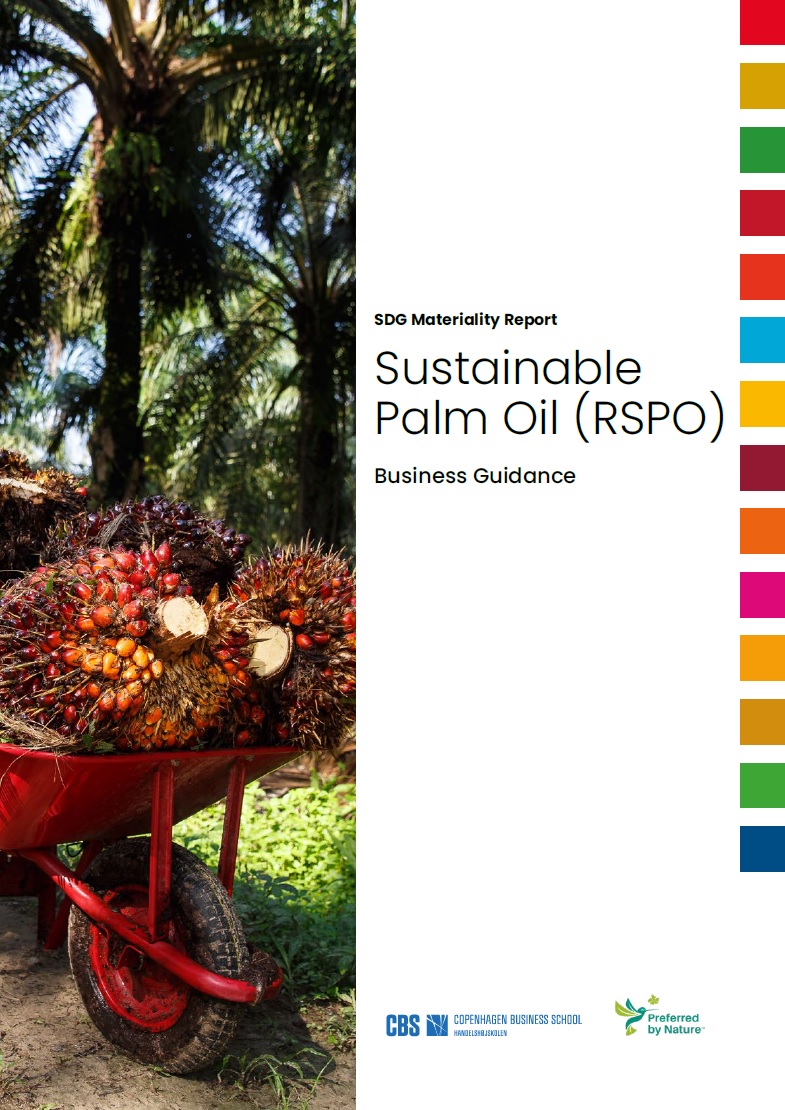New report out: Study translates RSPO Palm Oil Standard into Sustainable Development Goals
Copenhagen Business School (CBS) teamed up with Preferred by Nature and the Danish Environmental Protection Agency to develop a framework aligning certified palm oil with the UN’s Sustainable Development Goals (SDG). A report on the study is now publicly available.
While the EU is currently preparing to launch new anti-deforestation rules, businesses sourcing palm oil may seek help in a new study recently published by Copenhagen Business School (CBS).
Supported by Preferred by Nature and the Danish Environmental Agency, the new study highlights the need for a common language when assessing sustainability risks related to palm oil and palm oil products.
According to the authors, there is a strong demand from investors, businesses, civil society and consumers for clarity regarding the impact of sustainability efforts on this commodity.

“Firms do not necessarily have the language to argue how these standards are supporting the sustainable impact they are trying to create. The SDG’s can provide a common language that companies around the world can use to illustrate their commitment to sustainability,” said Kristjan Jespersen, associate professor at Copenhagen Business School.
His team of students and researchers have linked the principles and criteria of the Roundtable on Sustainable Palm Oil (RSPO), the ‘gold standard’ of sustainable palm oil, to the targets and the indicators of the UN Sustainable Development Goals.
“We have to change the way we communicate about sustainability. Historically we have been thinking of sustainability as an inside-out conversation, where companies define their commitment to sustainability, and they chose the messaging and the tools, they use. This has changed thanks to the rise of ESG and sustainable finance. Today you also have an outside-in perspective, where financial institutions and different stakeholders are challenging the assumptions that businesses are using,” said Kristjan Jespersen.
Unsustainably produced palm oil accounts for approximately 8 percent of global deforestation per year and was recently included in EU’s proposal for a new anti-deforestation regulation together with timber, coffee, cocoa, beef and soy.
